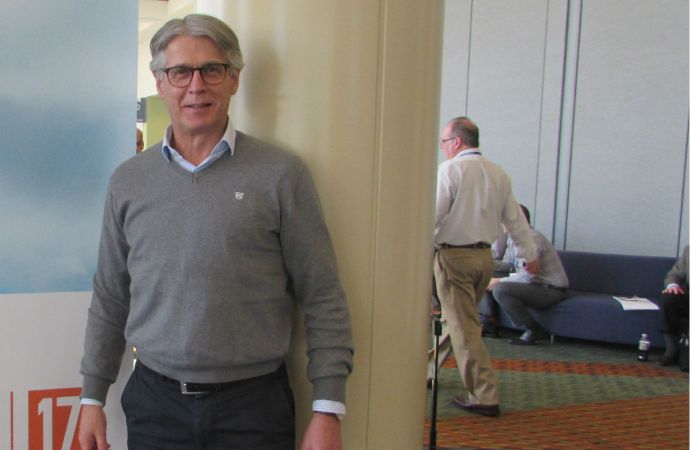Compressor manufacturer SECOP argues that its improved range of compressors utilising variable speed technology can reduce energy costs in light commercial and household applications.

Pieter Boink, SECOP’s Head of Business Development & Marketing
Photo Credit: Michael Garry
“The unique thermodynamic property of hydrocarbons already makes a system more efficient compared to systems using HFCs as the refrigerant. Adding variable speed technology on top, the industry can realise more than 40% system efficiency improvement compared to fixed speed compressors with HFCs or HFOs as the refrigerant,” Pieter Boink, SECOP’s Head of Business Development & Marketing, told hydrocarbons21.com.
The compressor manufacturer argues that this will help OEMs in the light commercial and household industry to save costs.
SECOP introduced the first variable-speed hermetic compressors in 1998, putting them ahead of the regulatory curve as HFCs are phased down.
The compressors allow European customers to kill two birds with one stone by complying with the requirements of the EU’s F-Gas Regulation and Eco-Design Directive, Boink explained.
“That is where the introduction of variable speed hermetic compressors comes in, as they increase the energy efficiency of light commercial refrigeration systems even more,” he said, thus complying with both sets of regulation.
[During Euroshop 2014] there were a lot of companies exhibiting plug-in cabinets that were highlighting the fact that they were using R290.”
- Pieter Boink, SECOP’s Head of Business Development & Marketing
The EU F-Gas Regulation has already had a big impact on the industry. Three years ago at the last EuroShop, the world’s biggest retail tradeshow, Boink observed: “There were a lot of companies exhibiting plug-in cabinets that were highlighting the fact that they were using R290.”
Now he expects hydrocarbons to become standard for light commercial cabinets. Plug ‘n’ play systems will “predominately be using hydrocarbons; R290 for the larger plug-in appliances and R600a for smaller ones,” he said.
Related stories


_1636620968.jpeg)

